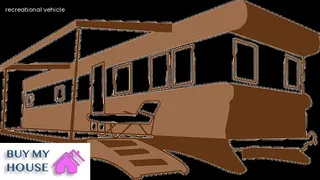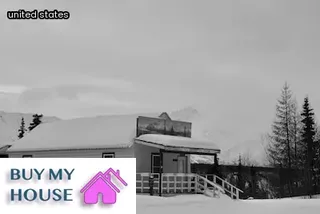Living in an RV can be an exciting way to experience life on the open road, but before you decide to sell your house and hit the pavement, it's important to weigh the pros and cons. On the one hand, selling your home gives you the opportunity to free up both time and money that would otherwise be spent maintaining a property, paying rent or mortgage payments, or dealing with other associated costs.
You can also travel at will and take advantage of opportunities as they arise. On the other hand, living in an RV requires some lifestyle adjustments such as downsizing possessions and making storage arrangements for items no longer needed.
Additionally, RV living requires a high level of mobility that some may not be comfortable with or able to handle due to physical limitations or health concerns. Furthermore, depending on where you plan to park your rig, there may be additional fees associated with using public facilities such as campgrounds or RV parks.
Ultimately, while there are many benefits associated with selling your house and hitting the road in an RV lifestyle, it is important to consider all of these factors before making a decision.

Making the transition from homeownership to full-time RV living is an exciting yet daunting decision. To ensure a smooth and successful transition, it is important to prepare in advance by considering all of the pros and cons associated with selling your house and taking up the RV lifestyle.
One of the main benefits of selling your home in order to finance a full-time RV lifestyle is that you can live debt free, as RVs are typically much less costly than homes. On the other hand, one potential downside could be having to downsize your possessions drastically and having limited storage space while living on the road.
Additionally, it may be difficult to adjust to living in such close quarters with your family or significant other, so it is important to consider how this could affect relationships. However, embracing this new way of life can also bring about many exciting adventures, experiences, and opportunities for growth and independence.
There will be challenges along the way but if you’re willing to put in the work and effort required for preparation, transitioning from homeownership to full-time RV living can be a rewarding experience overall.
Selling your home and moving into a recreational vehicle is an attractive option for those wishing to downsize their lifestyle and pursue the RV lifestyle. However, there are both pros and cons that must be taken into consideration before taking the plunge.
One of the main advantages of selling your house to live in an RV is the cost savings. Not only will you save money on rent or mortgage payments, but you will also save money on utilities, taxes, and insurance premiums.
Additionally, living in an RV allows you to travel wherever you want with relative ease. On the other hand, while living in an RV may offer freedom from certain bills and responsibilities associated with owning a home, it can be difficult to find long-term parking options as well as suitable locations for repairs or maintenance.
Additionally, due to the smaller size of most RVs, storage space can become a major issue quickly. Ultimately, deciding whether or not selling your home and moving into a recreational vehicle is right for you depends largely on your individual circumstances and preferences.

Letting go of the material possessions we have gathered in our lives can be a daunting task, especially when it comes to selling your house and transitioning to an RV lifestyle. It may seem like a huge step and a difficult decision to make, but there are many potential benefits that come with living in an RV.
Downsizing for an RV life means you will no longer be tied down to one location or have hefty payments for bills such as rent or mortgage payments. You’ll also get the opportunity to explore different parts of the country and experience new places, cultures and people.
On the other hand, trading in your home for an RV also comes with some drawbacks such as having limited space, not being able to store items that would normally fit in a house, and having certain amenities that are not available on the road. Ultimately, it is important to weigh out all of the pros and cons before making a decision about whether or not selling your house and transitioning into an RV lifestyle is right for you.
When considering the RV lifestyle, it is important to weigh the pros and cons of selling your house and living in an RV full time. The primary benefit of choosing an RV over a traditional home is the freedom it offers.
With an RV, you can move from place to place as desired and explore different parts of the country at your leisure. Additionally, RVs are often more affordable than buying a house or even renting an apartment.
Maintenance costs are also lower since there are fewer components to maintain compared to a large home. Furthermore, RVs provide all the comforts of home in a smaller space with amenities like air conditioning and heating, televisions and other electronics, comfortable seating areas, and kitchen facilities for preparing meals.
Finally, there is often less paperwork involved in setting up residence in an RV than there is with purchasing a home or apartment; this makes transitioning from one location to another much easier.

When considering the RV lifestyle, one of the most important decisions you'll make is selecting the right recreational vehicle (RV) for full-time living. There are a variety of types and sizes of RVs to choose from, each with their own pros and cons.
If you plan on traveling frequently or spending a significant amount of time on the road, a motorhome may be your best option as it allows you to move quickly and provides all the comforts of home. If you prefer more stability and want to stay in one place for long periods, choosing a fifth wheel RV could be better suited for your needs.
It offers more living space than traditional travel trailers yet still allows for easy transportation from place to place. In addition, if you have limited funds or just don't need a lot of space, a pop-up camper or van conversion can provide an affordable yet comfortable option for full-time living.
Ultimately, deciding what type of RV is right for you comes down to your individual needs and preferences as well as budget constraints. Researching all available options thoroughly before making a final decision will ensure that you end up with an RV that suits your lifestyle best.
Living in an RV means having to make the most out of limited space. With careful planning and organization, it is possible to create an efficient living space that meets all of your needs.
A great way to maximize the amount of usable space is to invest in multi-functional furniture and storage solutions such as foldable tables, stackable chairs and bunk beds. Utilizing vertical storage can help you keep things organized and accessible, while using light colors for walls and floors can open up the area visually.
Additionally, look for ways to reduce clutter by getting rid of items you no longer need or use. Lastly, with a little creativity, you can transform the area into something special by adding personal touches like photos and artwork.
With these tips, you can make sure that your RV lifestyle is still a comfortable one despite its smaller size.

Adjusting to a new lifestyle can take some getting used to, and selling your house to pursue the RV lifestyle is no exception. You must be prepared for the challenges that come with living in a confined space, navigating different roads and terrain, finding places to stay, and having access to reliable power sources.
You may also need to adjust to fewer amenities than you were accustomed to in your traditional home. In addition, setting up a budget and learning how to stick to it can be difficult when you're on the road full-time and not collecting a steady income from one job.
It's important to take into account all of these potential issues before making the decision to sell your house and transition into full-time RV living. By being aware of the difficulties that may come with this big change in lifestyle, you're more likely able to make an informed decision about whether or not this is right for you.
Living in an RV can be a great way to explore the open road and experience new places, but it is important to remember that it isn't always free. To make sure you can enjoy traveling in your RV without breaking the bank, budgeting is key.
Before you hit the road, make sure you have an understanding of all the costs associated with owning and maintaining an RV such as insurance, registration fees, repairs, fuel costs and more. Additionally, think about how much money you will need for groceries, entertainment and other everyday expenses.
It’s also wise to set aside a certain amount each month for emergency costs or unexpected expenses. Finally, take into account that when living in an RV, you may not have access to traditional banking services like ATMs or online banking.
Therefore, it's important to plan ahead and bring enough cash with you on your journey.

When living in an RV, finding the best campgrounds or long term stays can be a daunting task. It is important to research the available options before making a decision so you can ensure you have found the right place that meets your needs and budget.
Some considerations when looking for a campground include location, amenities, cost, length of stay and age restrictions. When it comes to long term stays, many RVers opt for an established resort or park with full hookups, laundry facilities and other amenities such as swimming pools or playgrounds.
Additionally, some individuals may choose to stay in a boondocking spot with limited resources like water and electricity. Ultimately, it is up to each individual to decide what type of campground or long term stay is best suited for their lifestyle and budget.
When living in an RV, it's important to protect yourself financially by obtaining insurance and warranties. Having the right kind of coverage can help you avoid costly repairs and keep your budget in check.
Insurance for your RV should include collision, comprehensive, liability and medical payments. Additionally, if you purchased an older model or have done renovations yourself, it is a good idea to consider extended warranties that will cover any major mechanical issues that may occur down the road.
In addition to protecting your RV with insurance and warranties, it is also wise to obtain coverage for items such as personal possessions, clothing, electronics and other valuables that you may bring with you on your journey. This way, if anything unexpected were to happen while on the road, you would be covered.
Lastly, make sure you are familiar with all of the state-specific laws related to living in an RV so that you can ensure compliance and protect yourself from any legalities.

Before selling your house and buying an RV, it is important to consider any legal implications. Depending on where you live, you may need to adhere to zoning laws and regulations when purchasing your RV, as well as determine if there are any local restrictions for living in an RV full-time.
Furthermore, you should be aware of any taxes that could be applicable when selling your home. Additionally, if you have a mortgage loan on your house, you will need to determine what steps you need to take in order to pay off the remaining balance and close out the loan before selling.
Similarly, if there are any liens or judgments against the property itself, they must be paid off prior to completing the sale. Lastly, it is important to make sure that all deeds and titles of ownership are properly transferred between parties during the sale process.
Taking all of these legal considerations into account before making such a significant change can help ensure that the transition goes smoothly and without issue.
Living in a recreational vehicle (RV) is a unique lifestyle that many people choose to pursue, but it's important to consider how your family will adjust to living in such a small space. Moving into an RV requires downsizing considerably and having fewer possessions, so for those who are used to having a larger home, this transition can be difficult.
It's important to talk with the entire family about what they are willing to give up and what they expect out of life on the road. Additionally, it is essential to think about storage solutions in an RV as space is limited.
Some families may have difficulty transitioning from the comforts of their own home and having access to all of their possessions whenever they please. On the other hand, living in an RV can promote togetherness as you spend more time with each other while exploring different places around the country.

When considering the RV lifestyle, don't overlook the importance of repairs and maintenance for your recreational vehicle. Living in an RV requires diligent upkeep and regular servicing to ensure it remains safe and comfortable for all occupants.
If you have prior knowledge or experience with motor vehicles, you may be able to carry out some repairs yourself. However, more complex issues should be taken to a professional mechanic so that any potential problems are identified before they become major issues.
It's also important to regularly check the condition of all parts of your RV, including tires, brakes, engine oil levels, and hoses. This can help you spot potential threats early on before they cause more serious damage.
When it comes to maintenance tasks such as waxing and polishing, these can be done at home; however, when having your RV serviced by a professional mechanic, it’s best to ask them to perform these tasks too as part of their service package. Taking care of repairs and maintenance is essential if you want your recreational vehicle to remain in good working order for many years to come.
Living and traveling in an RV can be a great way to explore the world and become more self-sufficient. There are many pros associated with this lifestyle, such as having the ability to stay in different places for short periods of time, save on housing costs, and have access to amenities like showers, kitchens, and even laundry facilities.
However, RV living also comes with certain cons that should be considered before making the decision to sell your house and embark on this type of journey. One con is that you’ll need to learn new skills such as how to maintain your RV, repair appliances or fixtures, and find reliable sources of fuel.
Additionally, you’ll likely need to upgrade your vehicle’s battery system or invest in solar panels if you plan on being off-grid for extended periods of time. Furthermore, it can be difficult to find campsites while traveling which could lead to higher costs if you need to stay in commercial parks instead.
Finally, living in an RV means giving up some of the comforts of home such as a full kitchen and private bedroom; however, with careful planning and research these drawbacks can easily be overcome for those who are willing to take on the challenge.
Selling your house to live the RV lifestyle is an increasingly popular option for those who want the freedom and flexibility to travel the country. But before making such a big decision, it's important to consider all of the pros and cons from a financial perspective.
Living in an RV can be a great way to reduce your cost of living by eliminating rent or mortgage payments, as well as cutting down on utility bills. However, there are some drawbacks that need to be taken into account-such as fuel costs and maintenance fees.
Additionally, it may not be easy to find affordable places to stay in some areas or during peak travel seasons. Although RV living has its advantages, there are also potential risks involved with relying on an RV for housing-especially when it comes to resale value or long-term savings goals.
Ultimately, whether or not selling your house and moving into an RV is financially smart will depend on your individual budget and lifestyle preferences.

Living in an RV can be a much cheaper alternative to owning or renting a home. When you sell your house and transition to the RV lifestyle, you'll no longer have to pay for property taxes, mortgage payments, insurance, and maintenance costs.
Instead, you'll just need to worry about fuel costs, campground fees each night or every few weeks if you stay in one spot for a while, as well as any necessary repairs or upgrades that may pop up during your journey. While these expenses are lower than those associated with homeownership, they can still add up quickly if you're not careful.
Additionally, the cost of living in an RV will depend on the size of your vehicle and the amount of amenities it contains - luxury features such as air conditioning and laundry machines will increase your expenses but offer more comfort and convenience on the road. Ultimately, living in an RV is much more affordable than owning a home but requires careful budgeting to make sure you're not overspending.
Living the RV lifestyle has its advantages, but it also has its drawbacks. While it can be an exciting experience, here are some of the negatives to consider before selling your house and taking to the open road in an RV.
One major concern is that living in an RV can be cramped and uncomfortable. The size of an RV means that there is limited space for storage and living, which makes it difficult to entertain guests or even sleep comfortably on a regular basis.
Additionally, RVs lack many of the luxuries of traditional homes such as full-size bathrooms or kitchens with modern appliances and conveniences. Furthermore, due to their small size, RVs tend to have limited power output meaning that you may have difficulty running large devices such as air conditioners or microwaves which can make hot summer days unbearable.
Finally, while there are plenty of picturesque camping spots to park your RV during your travels, there will always be a risk of being exposed to extreme weather conditions or even theft if you don’t find a secure spot.
Living in an RV can be a great investment if you are looking to downsize your lifestyle and live more frugally. For many people, the idea of being able to travel while having a home on wheels is appealing.
While there are potential benefits to living in an RV, like increased freedom and the ability to travel whenever you want, there are also a few drawbacks that should be taken into consideration before making a decision. One of the biggest concerns when it comes to investing in an RV for living purposes is stability.
Unlike traditional housing, which generally appreciates over time, RVs depreciate significantly over time, meaning that you may not see any financial benefit from your purchase. Additionally, living in an RV may mean higher maintenance costs for upkeep and regular repairs due to wear and tear from traveling.
Finally, finding suitable places to park your RV can be difficult depending on local laws and regulations. Although it may not be the right fit for everyone, those who have chosen this lifestyle have found that with careful planning and research, they have been able to make the most of their new home on wheels!.
A: When deciding whether to sell your house and live in an RV, you should be aware of the costs and lifestyle associated with RVing. You will need to think about the type of RV that best fits your needs, such as a travel trailer, fifth wheel, or camper van. Additionally, you will need to think about the cost of batteries and other accessories necessary for powering your RV, as well as any fees associated with towing it. Finally, you may want to take into account where you plan on travelling with your RV and what kind of terrain you will encounter.